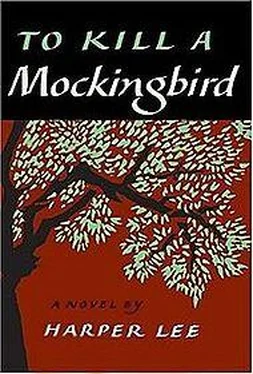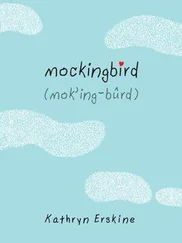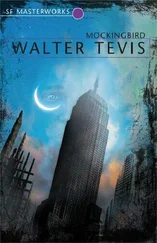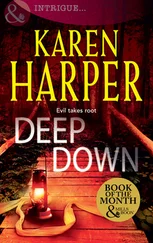Lee Harper - To Kill a Mockingbird
Здесь есть возможность читать онлайн «Lee Harper - To Kill a Mockingbird» весь текст электронной книги совершенно бесплатно (целиком полную версию без сокращений). В некоторых случаях можно слушать аудио, скачать через торрент в формате fb2 и присутствует краткое содержание. Жанр: Современная проза, на английском языке. Описание произведения, (предисловие) а так же отзывы посетителей доступны на портале библиотеки ЛибКат.
- Название:To Kill a Mockingbird
- Автор:
- Жанр:
- Год:неизвестен
- ISBN:нет данных
- Рейтинг книги:3 / 5. Голосов: 1
-
Избранное:Добавить в избранное
- Отзывы:
-
Ваша оценка:
- 60
- 1
- 2
- 3
- 4
- 5
To Kill a Mockingbird: краткое содержание, описание и аннотация
Предлагаем к чтению аннотацию, описание, краткое содержание или предисловие (зависит от того, что написал сам автор книги «To Kill a Mockingbird»). Если вы не нашли необходимую информацию о книге — напишите в комментариях, мы постараемся отыскать её.
To Kill a Mockingbird — читать онлайн бесплатно полную книгу (весь текст) целиком
Ниже представлен текст книги, разбитый по страницам. Система сохранения места последней прочитанной страницы, позволяет с удобством читать онлайн бесплатно книгу «To Kill a Mockingbird», без необходимости каждый раз заново искать на чём Вы остановились. Поставьте закладку, и сможете в любой момент перейти на страницу, на которой закончили чтение.
Интервал:
Закладка:
Zeebo rose from his pew and walked down the center aisle, stopping in front of us and facing the congregation. He was carrying a battered hymn-book. He opened it and said, “We’ll sing number two seventy-three.”
This was too much for me. “How’re we gonna sing it if there ain’t any hymn-books?”
Calpurnia smiled. “Hush baby,” she whispered, “you’ll see in a minute.”
Zeebo cleared his throat and read in a voice like the rumble of distant artillery:
“There’s a land beyond the river.”
Miraculously on pitch, a hundred voices sang out Zeebo’s words. The last syllable, held to a husky hum, was followed by Zeebo saying,
“That we call the sweet forever.”
Music again swelled around us; the last note lingered and Zeebo met it with the next line: “And we only reach that shore by faith’s decree.”
The congregation hesitated, Zeebo repeated the line carefully, and it was sung. At the chorus Zeebo closed the book, a signal for the congregation to proceed without his help.
On the dying notes of “Jubilee,” Zeebo said, “In that far-off sweet forever, just beyond the shining river.”
Line for line, voices followed in simple harmony until the hymn ended in a melancholy murmur.
I looked at Jem, who was looking at Zeebo from the corners of his eyes. I didn’t believe it either, but we had both heard it.
Reverend Sykes then called on the Lord to bless the sick and the suffering, a procedure no different from our church practice, except Reverend Sykes directed the Deity’s attention to several specific cases.
His sermon was a forthright denunciation of sin, an austere declaration of the motto on the wall behind him: he warned his flock against the evils of heady brews, gambling, and strange women. Bootleggers caused enough trouble in the Quarters, but women were worse. Again, as I had often met it in my own church, I was confronted with the Impurity of Women doctrine that seemed to preoccupy all clergymen.
Jem and I had heard the same sermon Sunday after Sunday, with only one exception. Reverend Sykes used his pulpit more freely to express his views on individual lapses from grace: Jim Hardy had been absent from church for five Sundays and he wasn’t sick; Constance Jackson had better watch her ways — she was in grave danger for quarreling with her neighbors; she had erected the only spite fence in the history of the Quarters.
Reverend Sykes closed his sermon. He stood beside a table in front of the pulpit and requested the morning offering, a proceeding that was strange to Jem and me. One by one, the congregation came forward and dropped nickels and dimes into a black enameled coffee can. Jem and I followed suit, and received a soft, “Thank you, thank you,” as our dimes clinked.
To our amazement, Reverend Sykes emptied the can onto the table and raked the coins into his hand. He straightened up and said, “This is not enough, we must have ten dollars.”
The congregation stirred. “You all know what it’s for — Helen can’t leave those children to work while Tom’s in jail. If everybody gives one more dime, we’ll have it—” Reverend Sykes waved his hand and called to someone in the back of the church. “Alec, shut the doors. Nobody leaves here till we have ten dollars.”
Calpurnia scratched in her handbag and brought forth a battered leather coin purse. “Naw Cal,” Jem whispered, when she handed him a shiny quarter, “we can put ours in. Gimme your dime, Scout.”
The church was becoming stuffy, and it occurred to me that Reverend Sykes intended to sweat the amount due out of his flock. Fans crackled, feet shuffled, tobacco-chewers were in agony.
Reverend Sykes startled me by saying sternly, “Carlow Richardson, I haven’t seen you up this aisle yet.”
A thin man in khaki pants came up the aisle and deposited a coin. The congregation murmured approval.
Reverend Sykes then said, “I want all of you with no children to make a sacrifice and give one more dime apiece. Then we’ll have it.”
Slowly, painfully, the ten dollars was collected. The door was opened, and the gust of warm air revived us. Zeebo lined On Jordan’s Stormy Banks, and church was over.
I wanted to stay and explore, but Calpurnia propelled me up the aisle ahead of her. At the church door, while she paused to talk with Zeebo and his family, Jem and I chatted with Reverend Sykes. I was bursting with questions, but decided I would wait and let Calpurnia answer them.
“We were ‘specially glad to have you all here,” said Reverend Sykes. “This church has no better friend than your daddy.”
My curiosity burst: “Why were you all takin’ up collection for Tom Robinson’s wife?”
“Didn’t you hear why?” asked Reverend Sykes. “Helen’s got three little’uns and she can’t go out to work—”
“Why can’t she take ‘em with her, Reverend?” I asked. It was customary for field Negroes with tiny children to deposit them in whatever shade there was while their parents worked — usually the babies sat in the shade between two rows of cotton. Those unable to sit were strapped papoose-style on their mothers’ backs, or resided in extra cotton bags.
Reverend Sykes hesitated. “To tell you the truth, Miss Jean Louise, Helen’s finding it hard to get work these days... when it’s picking time, I think Mr. Link Deas’ll take her.”
“Why not, Reverend?”
Before he could answer, I felt Calpurnia’s hand on my shoulder. At its pressure I said, “We thank you for lettin’ us come.” Jem echoed me, and we made our way homeward.
“Cal, I know Tom Robinson’s in jail an’ he’s done somethin’ awful, but why won’t folks hire Helen?” I asked.
Calpurnia, in her navy voile dress and tub of a hat, walked between Jem and me. “It’s because of what folks say Tom’s done,” she said. “Folks aren’t anxious to — to have anything to do with any of his family.”
“Just what did he do, Cal?”
Calpurnia sighed. “Old Mr. Bob Ewell accused him of rapin’ his girl an’ had him arrested an’ put in jail—”
“Mr. Ewell?” My memory stirred. “Does he have anything to do with those Ewells that come every first day of school an’ then go home? Why, Atticus said they were absolute trash — I never heard Atticus talk about folks the way he talked about the Ewells. He said—”
“Yeah, those are the ones.”
“Well, if everybody in Maycomb knows what kind of folks the Ewells are they’d be glad to hire Helen... what’s rape, Cal?”
“It’s somethin’ you’ll have to ask Mr. Finch about,” she said. “He can explain it better than I can. You all hungry? The Reverend took a long time unwindin’ this morning, he’s not usually so tedious.”
“He’s just like our preacher,” said Jem, “but why do you all sing hymns that way?”
“Linin’?” she asked.
“Is that what it is?”
“Yeah, it’s called linin’. They’ve done it that way as long as I can remember.”
Jem said it looked like they could save the collection money for a year and get some hymn-books.
Calpurnia laughed. “Wouldn’t do any good,” she said. “They can’t read.”
“Can’t read?” I asked. “All those folks?”
“That’s right,” Calpurnia nodded. “Can’t but about four folks in First Purchase read... I’m one of ‘em.”
“Where’d you go to school, Cal?” asked Jem.
“Nowhere. Let’s see now, who taught me my letters? It was Miss Maudie Atkinson’s aunt, old Miss Buford—”
“Are you that old?”
“I’m older than Mr. Finch, even.” Calpurnia grinned. “Not sure how much, though. We started rememberin’ one time, trying to figure out how old I was — I can remember back just a few years more’n he can, so I’m not much older, when you take off the fact that men can’t remember as well as women.”
Читать дальшеИнтервал:
Закладка:
Похожие книги на «To Kill a Mockingbird»
Представляем Вашему вниманию похожие книги на «To Kill a Mockingbird» списком для выбора. Мы отобрали схожую по названию и смыслу литературу в надежде предоставить читателям больше вариантов отыскать новые, интересные, ещё непрочитанные произведения.
Обсуждение, отзывы о книге «To Kill a Mockingbird» и просто собственные мнения читателей. Оставьте ваши комментарии, напишите, что Вы думаете о произведении, его смысле или главных героях. Укажите что конкретно понравилось, а что нет, и почему Вы так считаете.












